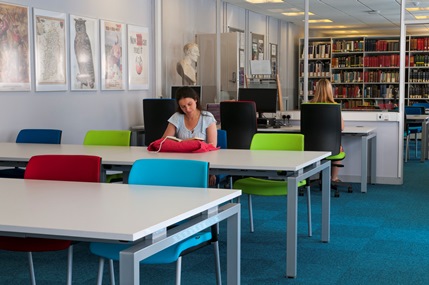Using Archives at the Record Office

Each archive office has its own regulations and ways of working. It will help your visit if you find out about procedures in advance by looking at their web pages, telephoning, e-mailing or writing to the office.
- Always check opening times. Most places are open during normal office hours, with only occasional evening and Saturday openings
- Check what facilities are provided. You might need to take a packed lunch if the office is out of town
- It is always best to make an appointment, as they help you to make the best use of your visit. Staff can reserve your seat or microform reader; make material ready (saving time once you're there); note any potential problems such as material held off-site or requiring conservation; and arrange for colleagues to be available
- Most offices require new visitors to register with them. This is a security measure to help safeguard the unique material, and it also helps offices understand who their users are
- You will need to take some identification with you. Some offices require photographic ID such as a passport or drivers licence, and something with an address such as a utility bill
- Some offices require references or letters of introduction
- If you are issued with a reader's ticket you must remember to take it with you on all subsequent visits
- During the registration process you will normally be asked to abide by the repository's own rules and regulations
Regulations in archive offices and rare book reading rooms are generally stricter than those enforced in public libraries. This reflects the fact that archive holdings and early printed materials are unique and irreplaceable, and need to be treated with great care. Regulations vary across offices, but clauses may include:
- No food or drink in areas where original material is used, to avoid spillages
- Use of supports and weights so that the documents are not damaged when they are opened
- Use of pencil only: pens and biros can leak and cause permanent marks on the documents
- Restriction on the number of items issued at one time, to allow proper stock-checking
- Restrictions on photocopying and photographing of original documents. Most reprographic requests are carried out by staff and for the purposes of private study and research only. They normally have to be requested on a special form which includes a copyright statement which must be signed. Some offices allow users to take photographs using their own digital cameras, but many do not allow this because of issues over copyright and ownership of the original documents

The majority of material in archive offices is kept in restricted access stores and brought out for use in the reading room only. Researchers cannot browse the shelves as in a library.
Some popular material may be available in microform. In this case you may be required to use the surrogate copy rather than the original, to safeguard the original from wear and tear.
All offices will have staff on hand to advise on procedures for ordering documents. These vary between offices, but will often involve filling out a ticket for each item which you want to see.
Some offices operate a policy of timed document collection, so there may be a wait for your material. To make best use of your time, ask if you can order some documents in advance of your visit.
Peel Museum, Art Gallery and Archives have a blog post What's it like to visit the archives? which contains a lot of advice that applies to any archive.
Next page: What to expect from archives